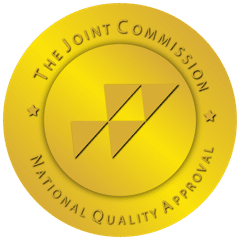
When seeking drug addiction treatment, it’s crucial to understand the differences between inpatient and outpatient drug rehab. These two approaches offer distinct advantages and cater to different needs. Whether you’re in Brea, California, or any other location, comprehending these differences will help you make an informed decision regarding your treatment.
Inpatient drug treatment, also known as residential rehab, involves staying at a treatment facility for a specific period. This option is beneficial for individuals with severe addiction or those who require a highly structured and supportive environment. On the other hand, outpatient drug treatment allows individuals to receive treatment while living at home and continuing with their daily activities.
Both inpatient and outpatient drug rehab options have their pros and cons. Let’s explore them in more detail to determine which approach might be the best fit for you:
Comparing Inpatient and Outpatient Drug Treatment Options
Inpatient Drug Treatment:
Inpatient drug treatment in Orange County, offers a comprehensive and immersive approach to addiction recovery. Here are some key features:
- 24/7 Support and Supervision: Inpatient facilities provide round-the-clock care and supervision, ensuring individuals have constant support during their recovery journey.
- Structured Environment: Inpatient rehab programs follow a highly structured schedule, including therapy sessions, support groups, recreational activities, and holistic treatments. This structure helps individuals develop discipline and focus on their recovery.
- Removal from Triggers and Temptations: By residing in a controlled environment, individuals are separated from the external triggers and temptations that may hinder their recovery process.
- Intensive Therapy: Inpatient programs offer various therapeutic approaches, including individual counseling, group therapy, family therapy, and specialized therapies like cognitive-behavioral therapy (CBT) or dialectical behavior therapy (DBT).
- Peer Support: Inpatient rehab allows individuals to connect with peers who are also on the path to recovery. This peer support system fosters a sense of community and understanding.
Inpatient drug treatment is particularly suitable for individuals with severe addiction, co-occurring mental health disorders, or those who lack a stable and supportive home environment.

Outpatient Drug Treatment:
Outpatient drug treatment in Orange County, offers flexibility and allows individuals to continue living at home while receiving treatment. Here are some key features:
- Flexibility and Convenience: Outpatient programs provide flexibility in scheduling treatment sessions, allowing individuals to attend therapy and counseling sessions while fulfilling their personal and professional obligations.
- Continued Family and Social Support: By staying at home, individuals can maintain their existing support networks, including family, friends, and community.
- Lower Cost: Outpatient programs are generally more affordable than inpatient treatment, as they do not involve accommodation and 24/7 care.
- Transitioning into Daily Life: Outpatient rehab helps individuals practice their newly acquired coping skills and strategies in their real-life environments, facilitating a smoother transition into long-term recovery.
- Motivation and Accountability: Although outpatient treatment may require more self-discipline, it allows individuals to take responsibility for their recovery journey and build a strong sense of accountability.
Outpatient drug treatment is suitable for individuals with less severe addiction, a stable home environment, a strong support system, and the ability to manage their recovery while attending regular treatment sessions.

Determining the Best Treatment Approach: Inpatient vs. Outpatient
Choosing between inpatient and outpatient drug treatment can be challenging. However, considering certain factors can help determine the best approach for you:
- Severity of Addiction: If your addiction is severe, with a high risk of relapse or co-occurring mental health disorders, inpatient treatment may be the most appropriate option.
- Supportive Environment: If your home environment is unstable or unsupportive, inpatient treatment provides a controlled and supportive setting for your recovery.
- Flexibility and Obligations: If you have personal or professional obligations that cannot be put on hold, outpatient treatment allows you to receive treatment while fulfilling these responsibilities.
- Financial Considerations: If cost is a significant factor, outpatient treatment may be a more affordable option, as it does not involve accommodation and round-the-clock care.
- Medical and Mental Health Needs: If you have complex medical or mental health needs, inpatient treatment can provide the necessary medical supervision and specialized care.
Ultimately, the decision between inpatient and outpatient drug treatment should be based on an individual’s unique circumstances, preferences, and treatment goals. Consulting with a professional at Lift Off Recovery in Brea, California, can provide personalized guidance and help you make an informed choice.
Lift Off Recovery: Your Partner in Drug Addiction Treatment
Lift Off Recovery is a leading drug treatment center in Brea, California, dedicated to helping individuals overcome addiction and achieve lasting recovery. With a compassionate and experienced team, Lift Off Recovery offers a range of evidence-based treatment options tailored to each individual’s needs.
At Lift Off Recovery, we understand the importance of finding the right treatment approach for each person. Our comprehensive assessment process helps determine whether inpatient or outpatient drug treatment is the best fit. We prioritize individualized care, ensuring our clients receive the support and resources necessary for their recovery journey.
If you or a loved one is struggling with drug addiction in Brea, California, contact Lift Off Recovery today. Our dedicated team is here to provide personalized support and guide you towards lasting recovery. Reach out to us now to take the first step towards a brighter future.

FAQ 1: How do I know if I need inpatient or outpatient drug rehab?
Determining whether you need inpatient or outpatient drug rehab depends on factors such as the severity of your addiction, your living situation, and your support network. A professional assessment from a treatment center can help guide you towards the most appropriate option.
FAQ 2: What are the benefits of inpatient drug rehab?
Inpatient drug rehab offers benefits such as 24/7 support and supervision, a structured environment conducive to recovery, removal from triggers and temptations, intensive therapy, and peer support.
FAQ 3: What are the advantages of outpatient drug rehab?
Outpatient drug rehab provides flexibility, allowing individuals to continue living at home and fulfilling personal and professional obligations. It also offers continued family and social support, lower cost compared to inpatient treatment, and the opportunity to transition into daily life while practicing recovery skills.
FAQ 4: How long does inpatient drug rehab typically last?
The duration of inpatient drug rehab varies depending on factors such as the individual’s needs, the severity of addiction, and the treatment program’s structure. Inpatient programs can range from 28 days to several months.
FAQ 5: What is the duration of outpatient drug rehab programs?
Outpatient drug rehab programs typically involve attending treatment sessions for a few hours a day, several days a week. The duration of outpatient programs varies based on the individual’s progress and treatment plan, ranging from a few weeks to several months.
FAQ 6: What types of therapy are offered in inpatient drug rehab?
Inpatient drug rehab programs offer various types of therapy, including individual counseling, group therapy, family therapy, cognitive-behavioral therapy (CBT), dialectical behavior therapy (DBT), and holistic therapies such as art therapy and yoga.
FAQ 7: Can I work or go to school while in outpatient drug rehab?
Yes, one of the advantages of outpatient drug rehab is its flexibility, allowing individuals to maintain their work, school, or other commitments while attending treatment sessions. However, it’s essential to ensure that treatment remains a priority and to attend all scheduled sessions.
FAQ 8: Will my insurance cover inpatient or outpatient drug rehab?
Many insurance plans offer coverage for both inpatient and outpatient drug rehab programs. It’s advisable to check with your insurance provider to understand the extent of coverage and any out-of-pocket expenses you may incur.
FAQ 9: How can I decide between inpatient and outpatient drug rehab?
Deciding between inpatient and outpatient drug rehab depends on factors such as the severity of your addiction, your living situation, your support network, and your treatment goals. Consulting with a professional at a treatment center can help you make an informed decision based on your individual needs.
FAQ 10: What support services are available after completing drug rehab?
Many treatment centers offer aftercare services to support individuals after completing drug rehab, such as sober living arrangements, ongoing therapy and counseling, support groups, alumni programs, and relapse prevention planning. These services help individuals transition back into daily life while maintaining their sobriety.





